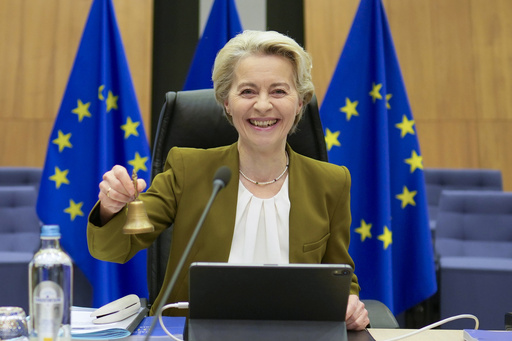
BRUSSELS — On Monday, nominees for key positions within the European Union are set to undergo parliamentary hearings as lawmakers assess candidates for pivotal commissioners responsible for implementing EU policies ranging from agriculture to trade over the next five years.
From the 26 newly appointed members of the European Commission, which has seen its influence grow significantly, four will be subject to extensive questioning lasting three hours conducted by senior lawmakers who are most familiar with their respective policy areas. The remaining candidates will be heard through November 12.
The European Commission stands as the sole EU institution with the authority to draft legislation, which, once approved by the European Parliament and the 27 member states, encompasses a wide array of issues, including water quality, data protection, competition, and migration.
President Ursula von der Leyen, who is now in her second term leading the Commission’s team of over 33,000 staff members, put together her new cabinet in September with an emphasis on balancing political sensitivities, geographical representation, and gender equality.
Each nominee, put forward by their respective national governments, is required to demonstrate their competence for managing their designated portfolios, show a commitment to the European vision, exhibit independence, and possess effective communication skills.
The hearings may set an important tone right from the outset, with Glenn Micallef, the anticipated commissioner for youth, culture, and sport from Malta, taking the stage as one of the first candidates. Micallef has faced criticism as being less experienced, especially in comparison to his nominated counterparts who include former prime ministers and ministers. Nevertheless, he has the backing of the center-left Socialists and Democrats, the second-largest political group in the Parliament.
Should Micallef face a rejection from other political factions, it could provoke significant political repercussions, particularly if the Socialists retaliate.
After each candidate’s hearing, a confidential evaluation is conducted by the overseeing lawmakers. To pass, candidates must secure a two-thirds majority vote. If unsuccessful, parliamentarians have the option to pose additional inquiries in writing or request another round of questioning lasting 90 minutes.
The results of the votes will remain confidential until the entire hearing process concludes next week. However, due to the significant political implications for each party group, it is likely that inside information will be released prior to the official announcements.
